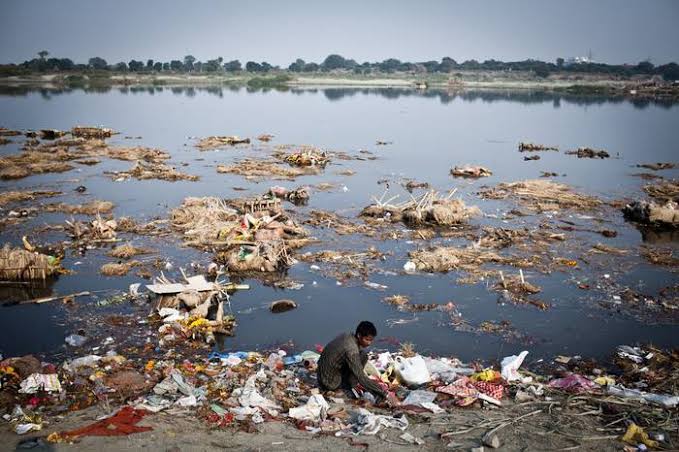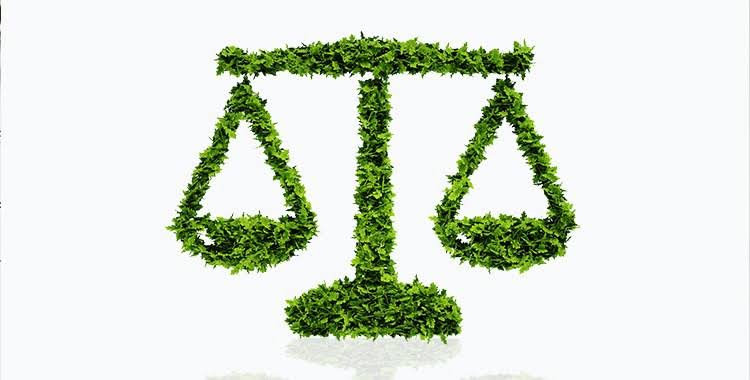World Nature Conservation Day is observed every year on July 28 to raise awareness about the significance of protection, conservation and sustainable management of the natural resources so that it is not over exploited.
In India, the need for protection and conservation of environment and sustainable use of natural resources is reflected in the constitutional framework. The Constitution under Part IVA (Article 51A-Fundamental Duties) casts a duty on every citizen of India to protect and improve the natural environment including forests, lakes, rivers and wildlife, and to have compassion for living creatures. Further, the Constitution of India under Part IV (Article 48A-Directive Principles of State Policies) stipulates that the State shall endeavour to protect and improve the environment and to safeguard the forests and wildlife of the country. Some legislations have also been incorporated for the said purpose.
1. The Environment (Protection) Act, 1986
The Environment (Protection) Act, 1986 provides for the protection and improvement of environment. Under this Act, the Central Government is empowered to take necessary measures to protect and improve the quality of environment.

Section 15 of the Act provides for the Penalties for contravention of the provisions. Whoever fails to comply with or contravenes any of the provisions of this Act, or the rules made thereunder, shall be punishable with imprisonment for a term which may extend to five years with fine which may extend to one lakh rupees, or with both. If the failure or contravention continues beyond one year after the date of conviction, the offender shall be punishable with imprisonment for a term which may extend to seven years.
Section 16 deals with Offences by Companies. If any offence under this Act has been committed by a company, every person who was directly in charge of and who are responsible for the conduct of the business of the company, at the time the offence was committed, shall be deemed to be guilty of the offence and shall be liable to be proceeded against and punished accordingly.
Section 17 deals with offences by Government Departments. In case of any offence committed by any Government Department, the Head of the Department or any other officer by whose consent or connivance the offence has been committed, shall be deemed to be guilty and shall be liable to be proceeded and punished accordingly.
2. Wildlife (Protection) Act, 1972
An act to provide for the protection of wild animals, birds and plants and for matters connected therewith or ancillary or incidental thereto with a view to ensuring the ecological and environmental security of the country.

Section 51 of the Wildlife (Protection) Act deals with penalties. Any person who contravenes any provision of this Act, or any rule or order made thereunder or who commits a breach of any of the conditions of any license or permit granted under this Act, shall be guilty of an offence and shall, on conviction, be punishable with imprisonment for a term which may extend to three years, or with fine which may extend to twenty-five thousand rupees, or with both.
Any person who contravenes any provisions of Chapter VA (Prohibition of trade or commerce in trophies, animal articles etc. derived from certain animals), shall be punishable with imprisonment for a term which shall not be less than three years but which may extend to seven years and also with fine which shall not be less than ten thousand rupees.
When any person is convicted of an offence against this Act, the Court may order that any captive animal, wild animal, animal article, trophy (uncured trophy, meat, ivory imported into India or an article made from such ivory, any specified plant, or part or derivative thereof) in respect of which the offence has been committed, and any trap, tool, vehicle, vessel or weapon, used in the commission of the said offence be forfeited to the State Government and that any license or permit, held by such person under the provisions of this Act, be cancelled. Also the Court may direct that the license, if any, granted to such person under the Arms Act, 1959 for possession of any arm with which an offence has been committed, shall be cancelled and such person shall not be eligible for a license for a period of five years from the date of conviction.
3. Forest (Conservation) Act, 1980
The Forest (Conservation) Act, 1980 was enacted to provide for the conservation of forests and for matters connected therewith or ancillary or incidental thereto. This Act was enacted by the Parliament to control the deforestation of the forest areas.
Section 3A of the Act provides penalty for contravention of the provisions. Whoever contravenes or abets the contravention of any of the provisions of Section 2 – (Restriction on the de-reservation of forests or use of forest land for non forest purpose), shall be punishable with simple imprisonment for a period which may extend to fifteen days.
Section 3B deals with offences by authorities and Government Departments. When any offence has been committed by any Government Department, the head of the Department or any other authority, or with the consent and connivance of any of the said officials, shall be deemed to be guilty of the offence and shall be proceeded against and punished accordingly.
4. The Indian Forest Act, 1927
The Indian Forest Act provides law relating to forests, transit of forest produce and the duty leviable on timber and other forest produce. It also defines the procedure to be followed for declaring an area to be Reserved Forest, a Protected Forest or a Village Forest.
Section 33 provides for Penalties for acts in contravention of notification under section 30 (notification reserving trees) or of rules under section 32 (rules for protecting forest). Any person who commits any of the following offences, namely:–
(a) fells, girdles, lops, taps or bums any tree reserved under section 30, or strips off the bark or leaves from, or otherwise damages, any such tree;
(b) contrary to any prohibition under section 30, quarries any stone, or bums any lime or charcoal or collects, subjects to any manufacturing process, or removes any forest-produce;
(c) contrary to any prohibition under section 30, breaks up or clears for cultivation or any other purpose any land in any protected forest;
(d) sets fire to such forest, or kindles a fire without taking all reasonable precautions to prevent its spreading to any tree reserved under section 30, whether standing fallen or felled, or to say closed portion of such forest;
(e) leaves burning any fire kindled by him in the vicinity of any such tree or closed portion;
(f) fells any tree or drags any timber so as to damage any tree reserved as aforesaid;
(g) permits cattle to damage any such tree;
-shall be punishable with imprisonment for a term which may extend to six months, or with fine which may extend to five hundred rupees, or with both.
Section 62 provides Punishment for wrongful seizure. Any Forest Officer or Police Officer who vexatiously and unnecessarily seizes any property on pretence of seizing any property liable confiscation under this Act shall be punishable with imprisonment for a term which may extend to six months, or with fine which may extend to five thousand rupees, or with both.
Section 63 provides Penalty for counterfeiting or defacing marks on trees and timber and for altering boundary marks. Whoever, with intent to cause damage or injury to the public or to any person, or to cause wrongful gain as defined in the Indian Penal Code– knowingly counterfeits upon any timber or standing tree a mark used by Forest-officers to; or alters, defaces or obliterates any such mark placed on a tree or on timber; or alters, moves, destroys or defaces any boundary-mark of any forest or waste land to which the provisions of this Act are applied, shall be punishable with imprisonment for a term which may extend to two years, or fine, or with both.
5. Air (Prevention & Control of Pollution) Act, 1981
Air (Prevention & Control of Pollution) Act is an Act to provide for the prevention, control and abatement of air pollution, to take appropriate steps for the preservation of the natural resources of the earth which, among other things, include the preservation of the quality of air and control of air pollution.

Section 37 provides Failure to comply with the provisions of Section 21 (restrictions on use of certain industrial plants) or Section 22 (Persons carrying on industry, etc., not to allow emission of air pollutants in excess of the standard laid down by State Board) or with the directions issued under section 31A. Whoever fails to comply with the aforesaid provisions, shall, in respect of each such failure, be punishable with imprisonment for a term which shall not be less than one year and six months but which may extend to six years and with fine.
Section 38 provides Penalties for certain acts. Whoever destroys, pulls down, removes, injures or defaces any pillar, post or stake fixed in the ground or any notice or other matter put up, inscribed or placed, or obstructs any person acting under the orders or directions of the Board from exercising his powers or damages any works or property belonging to the Board, or fails to furnish to the Board or any officer or other employee any information required or fails to intimate the occurrence of the emission of air pollutants into the atmosphere in excess of the standards laid down by the State Board or for the purpose of obtaining any consent makes a statement which is false in any material particular, shall be punishable with imprisonment for a term which may extend to three months or with fine which may extend to ten thousand rupees or with both.
Section 39 provides Penalty for contravention of certain provisions of the Act. Whoever contravenes any of the provisions of this Act or any order or direction issued thereunder, for which no penalty has been elsewhere provided in this Act, shall be punishable with imprisonment for a term which may extend to three months or with fine which may extend to ten thousand rupees or with both.
6. Water (Prevention & Control of Pollution)Act, 1974
The Water (Prevention & Control of Pollution) Act is an Act to provide for the prevention and control of water pollution and maintaining or restoring of wholesomeness of water, and with a view to carrying out the aforesaid purposes, for the establishment of Boards for the prevention and control of water pollution.

Section 41 provides Failure to comply with directions under [Section 20 (2) and (3) – Power to obtain information], [Section 32 (1) (c) – Emergency measures in case of pollution of stream or well], Section 33 (2) and Section 33A. Whoever fails to comply with the directions made under sub-sections (2) and (3) of Section 20, shall be punishable with imprisonment for a term which may extend to three months or with fine which may extend to ten thousand rupees or with both. Whoever fails to comply with any order issued under clause (c) of sub-section (1) of section 32 or any direction issued by a court under sub-section (2) of section 33 or any direction issued under section 33A shall be punishable with imprisonment for a term which shall not be less than one year and six months but which may extend to six years and with fine.
Section 42 provides Penalty for certain acts. Whoever destroys, pulls down, removes, injures or defaces any pillar, post or stake fixed in the ground, or obstructs any person acting under the orders or directions of the Board from exercising his powers, or damages any works or property belonging to the Board, or fails to furnish any information to any officer or other employee, or fails to intimate the occurrence of an accident or other unforeseen act, or knowingly or willfully makes a statement which is false in any material particular, or for the purpose of obtaining any consent, knowingly or willfully makes a statement which is false in any material particular, shall be punishable with imprisonment for a term which may extend to three months or with fine which may extend to ten thousand rupees or with both.
Section 43 and 44 provides that whoever contravenes the provisions of (Section 24-Prohibition on use of stream or well for disposal of polluting matter), (Section 25-Restrictions on new outlets and new discharges) and (Section 26-Provision regarding existing discharge of sewage or trade effluent) shall be punishable with imprisonment for a term which shall not be less than one year and six months but which may extend to six years and with fine.
Section 45A provides Penalty for contravention of certain provision of the Act. Whoever contravenes any of the provisions of this Act, for which no penalty has been elsewhere provided in this Act, shall be punishable with imprisonment which may extend to three months or with fine which may extend to ten thousand rupees or with both.
This write-up about the provisions of nature conservation in India was contributed to Discover East by Subhalaxmi Chakravarty. She is a Guwahati based lawyer and has a knack for traveling and cooking.
Send your own articles to discovereastin@gmail.com to be published here.
(Feature image source: Medium)

